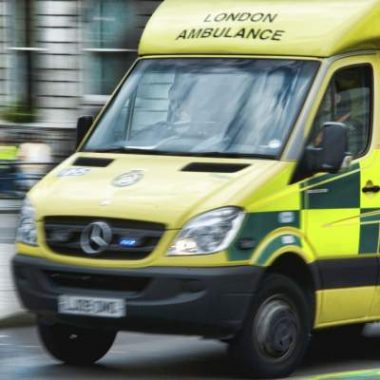NHS England is to trial giving 999 call handlers an extra two minutes to decide on whether to send out an ambulance, in light of the last two months’ ‘unprecedented’ demand on the service.
The London Ambulance Service NHS Trust and South West Ambulance Service NHS Trust, which together cover a population of around 13 million people, will begin the trial in February with the potential of measures being rolled out nationally if deemed a success in reducing the number of ambulances dispatched per call.
In today’s announcement, health secretary Jeremy Hunt said he made the decision to launch the pilots ‘in light of the unprecedented increase in demand for ambulance services in the last two months’, and after asking NHS England ‘to consider whether there were any changes which could be brought forward quickly’.
Under the current system, 999 callers are given 60 seconds to assess the patient’s need before the clock starts ticking on how long it took to dispatch the ambulance – measures that are used to assess the effectiveness of the target.
But Mr Hunt said that ‘this sometimes leads to ambulances being dispatched unnecessarily, so that fewer ambulances are available for patients who really do need emergency assistance’.
He added: ‘In the interests of patient safety, I therefore agree that giving call handlers very limited extra assessment time would ensure that ambulances are better deployed to where they are most needed and would allow a faster response time for those patients who really need it. I have agreed to two local pilots where call handlers will be allowed up to a maximum of an additional 120 seconds for assessment, before the clock starts, for all 999 calls.
‘This will not include those calls which are immediately life threatening (categorised as Red 1 calls). The pilot will therefore allow for a maximum of 180 seconds to assess a call, in order to reach a more detailed diagnosis and send the most appropriate response.’
Mr Hunt added that the pilots will be subject to ‘rigorous’ evaluation and only rolled out across England if deemed beneficial and safe for patients, and if it actually reduces the amount of ambulances dispatched per 999 call.
Professor Keith Willett, NHS England’s national director for acute care, said: ‘We are piloting these new arrangements because on medical grounds, we believe they will increase the availability of ambulance vehicles and paramedic staff, providing patients with a better service and improving their chances of survival, especially those with the most serious conditions.
‘It’s not about relaxing standards. By acting with slightly less haste on the calls, we believe we can get to more patients with more speed. Some conditions will be upgraded to Red1 status, requiring a more urgent response than is currently the case.’
But the GMB union, which represents ambulance staff, warned patients could die as a result of the changes.
Tony Hughes, GMB regional officer for Ambulance service in London and East of England, said: ‘These pilots in London and the South West are ridiculous. They will only serve to bring worse outcomes for patients. The run up to the general election is clearly a factor so that the Tories can show that Ambulance Services are meeting their targets. This is so far from the truth.
‘We will see people die more often than we see at the moment from conditions that can be treated if the right resource is got to them in good time.’
It comes as College of Emergency Medicine president Dr Clifford Mann said earlier this week that the NHS 111 urgent care number was the cause of almost all the increased pressure on A&E attendances in the last year.

















